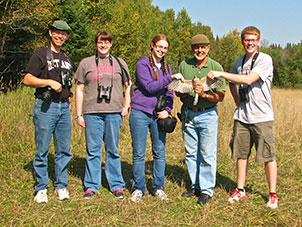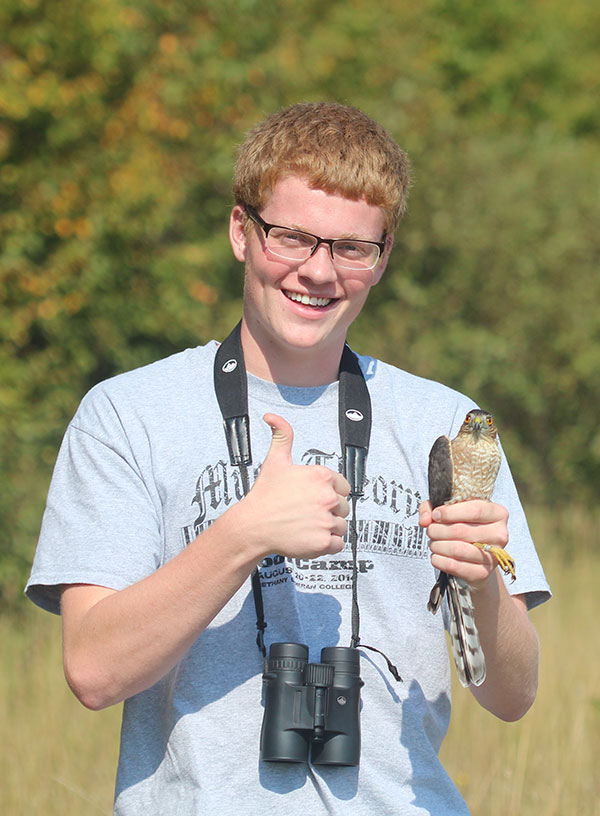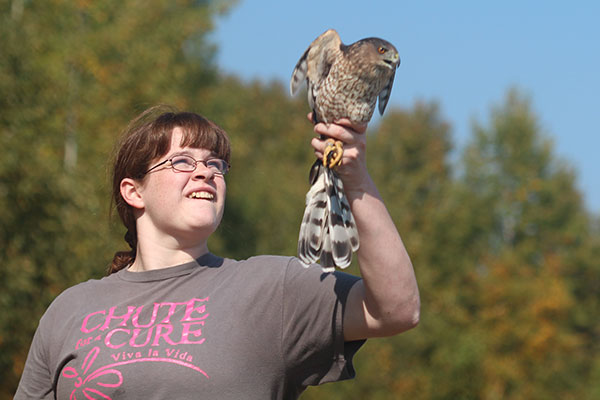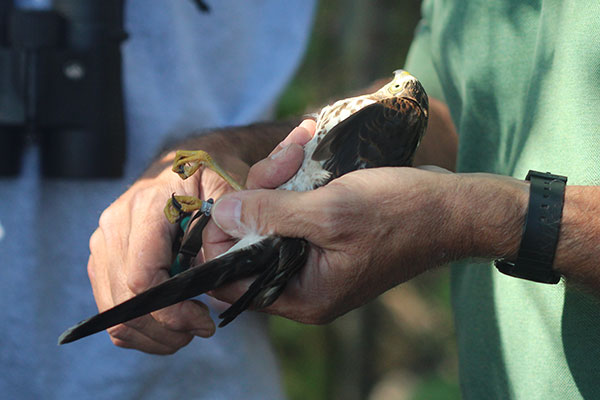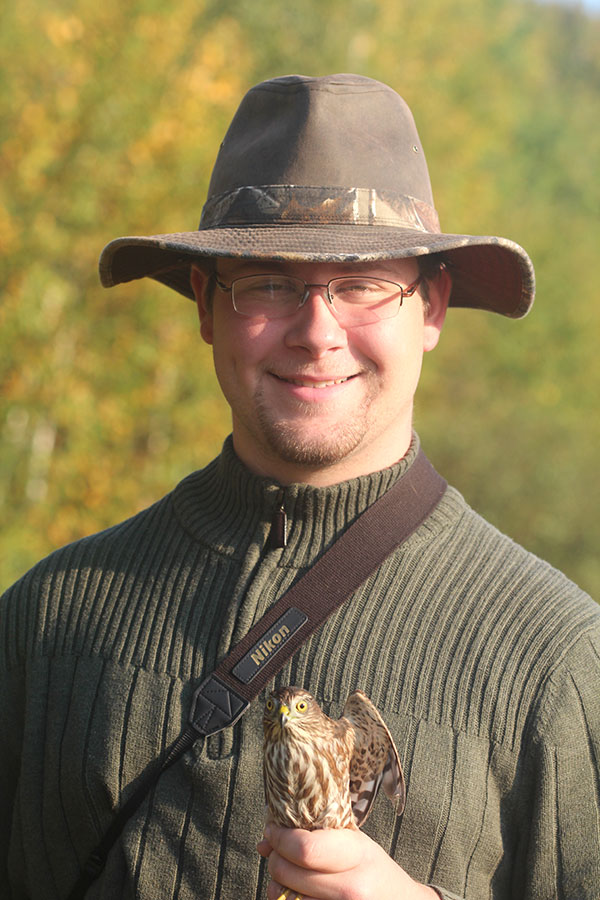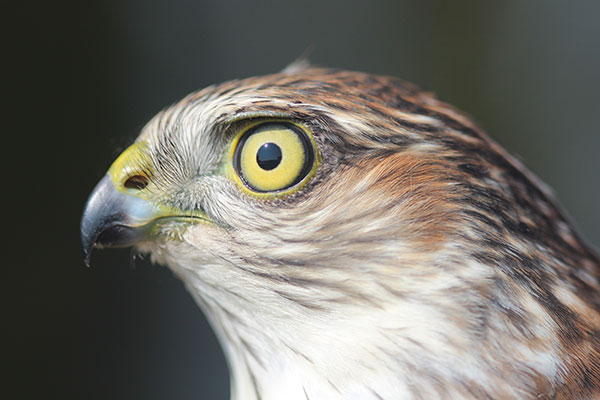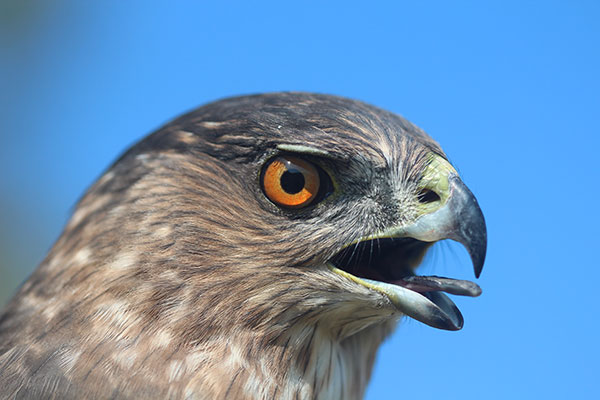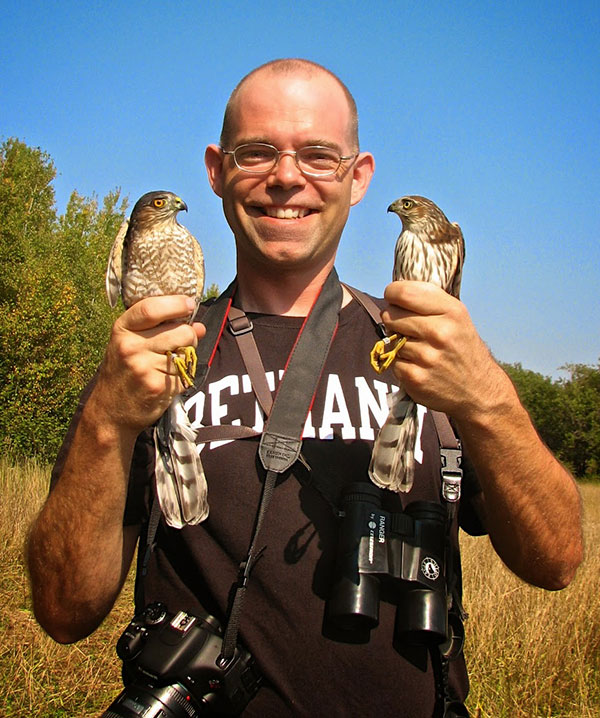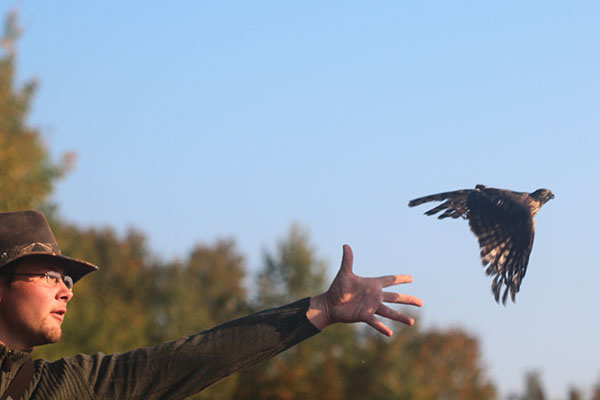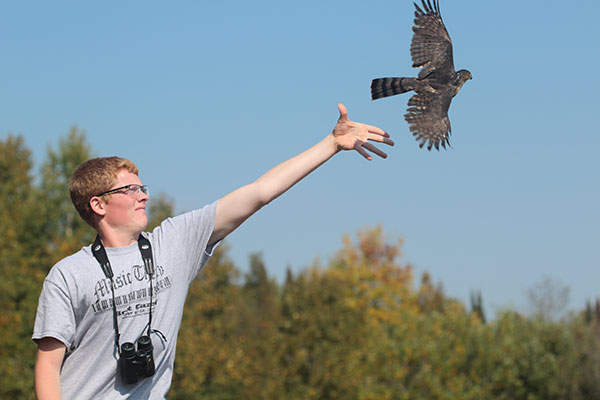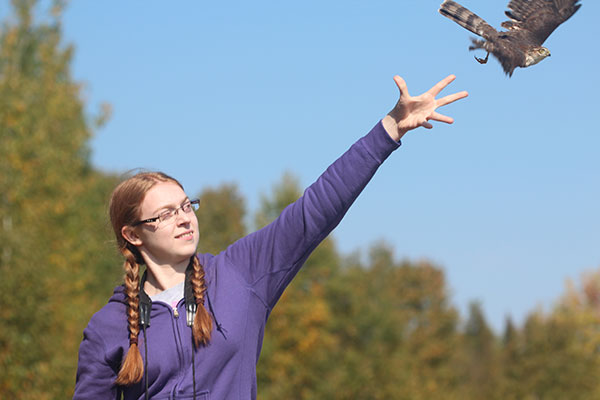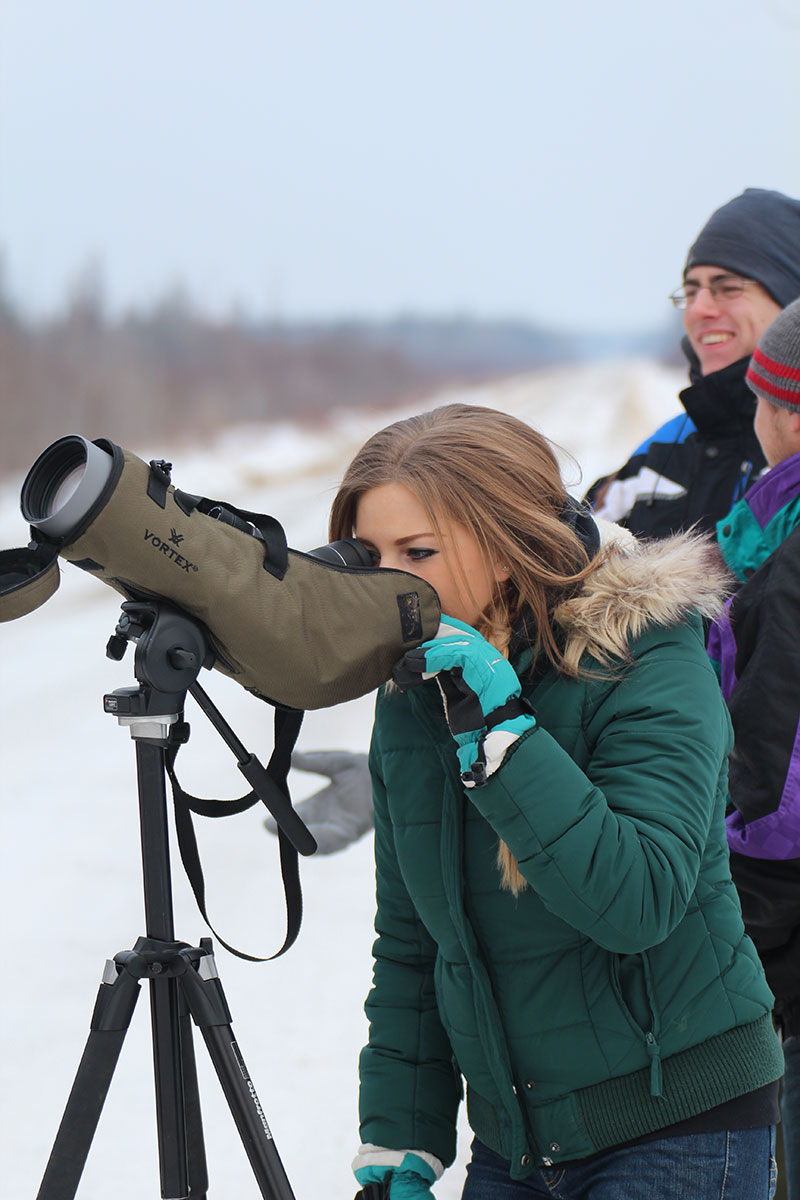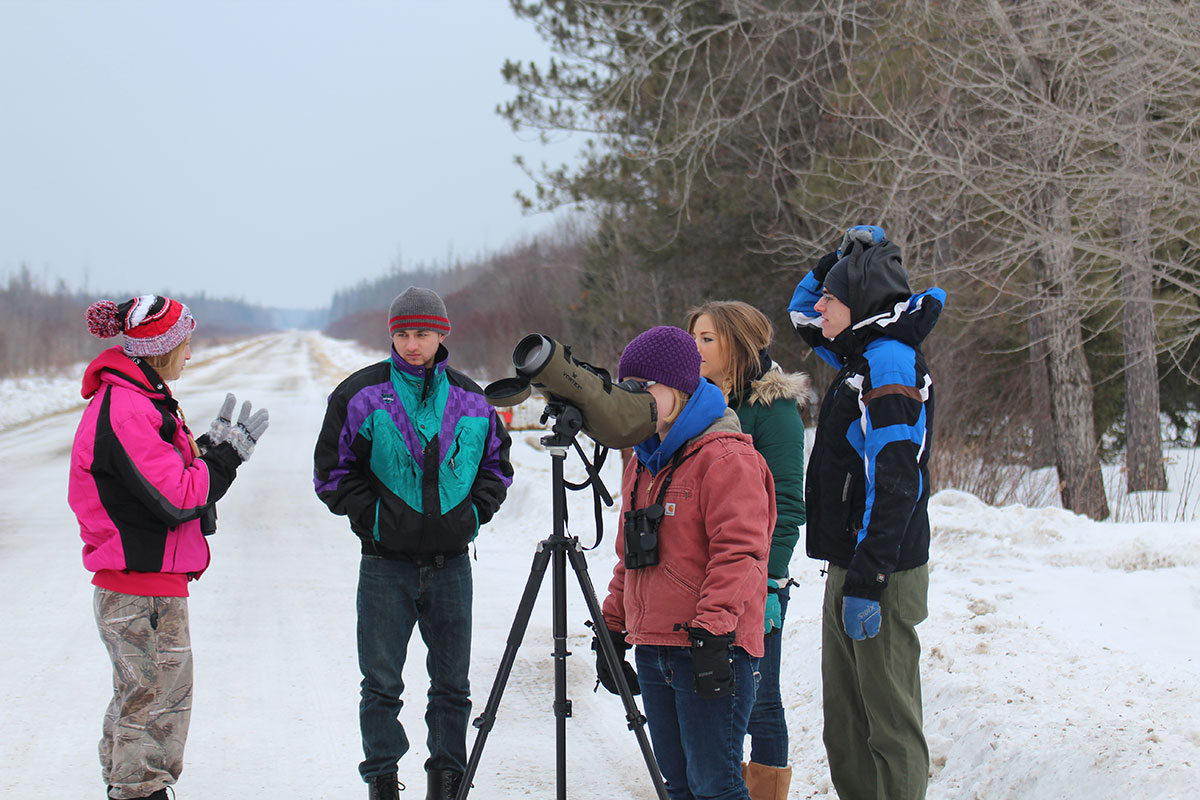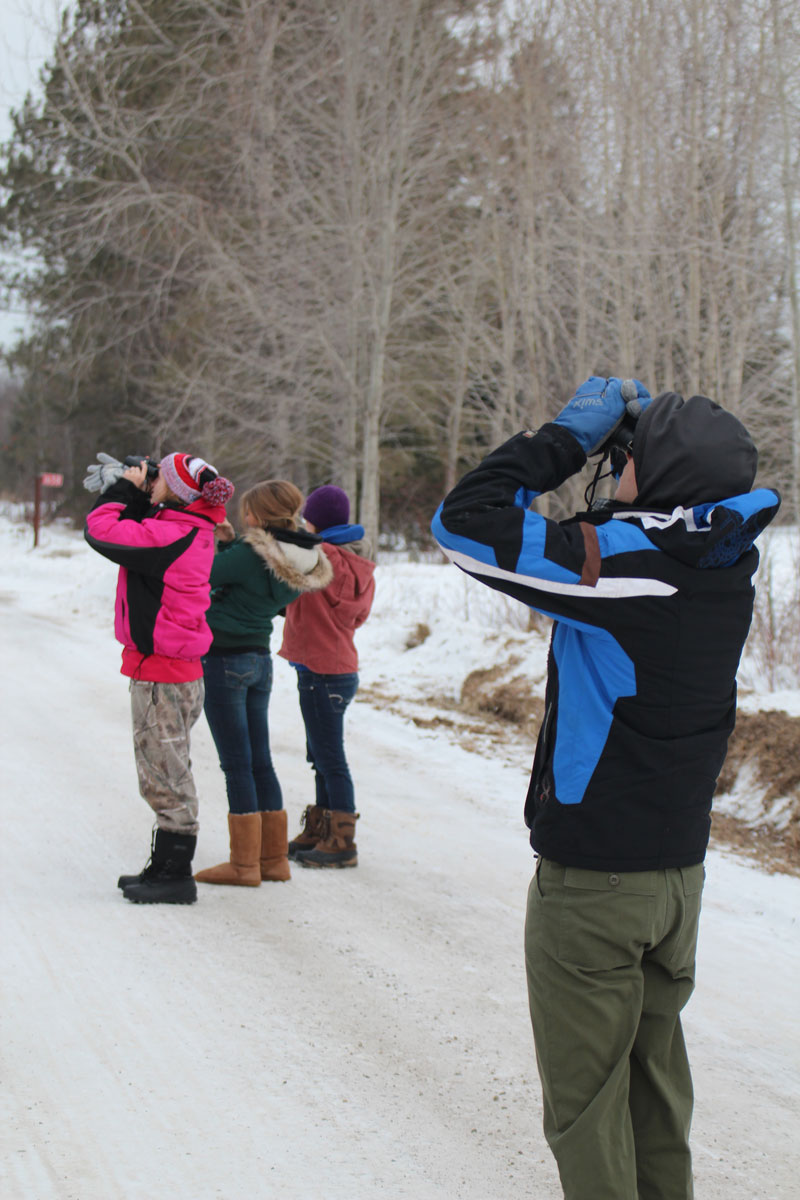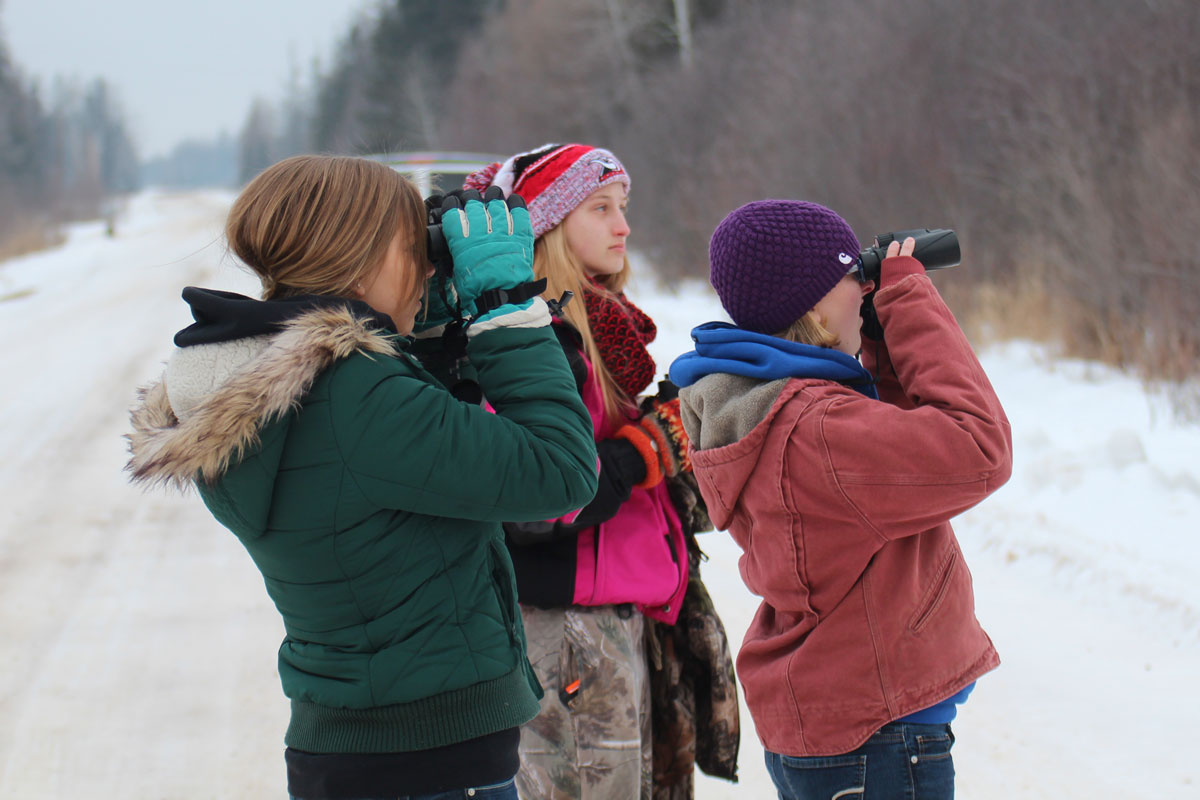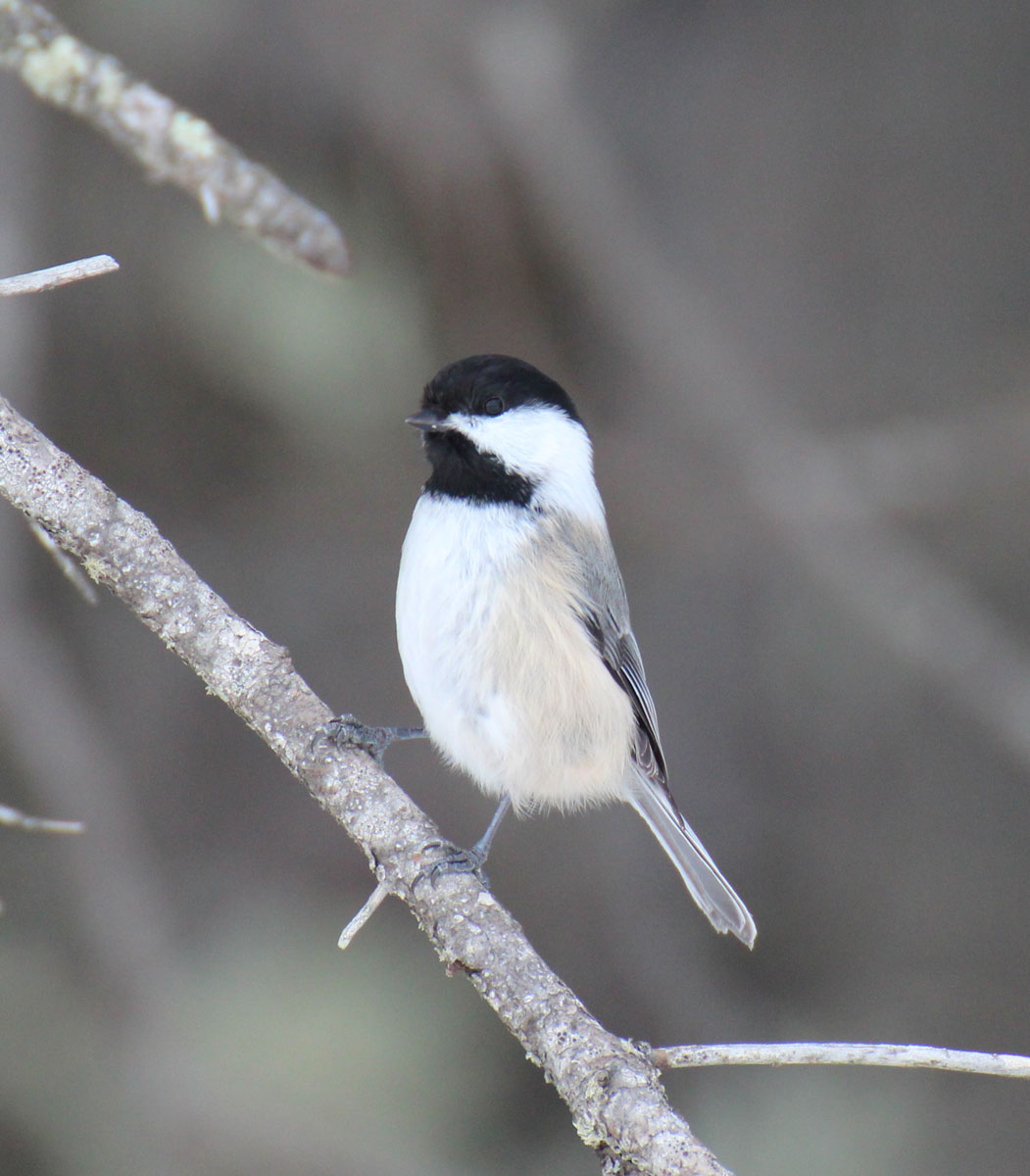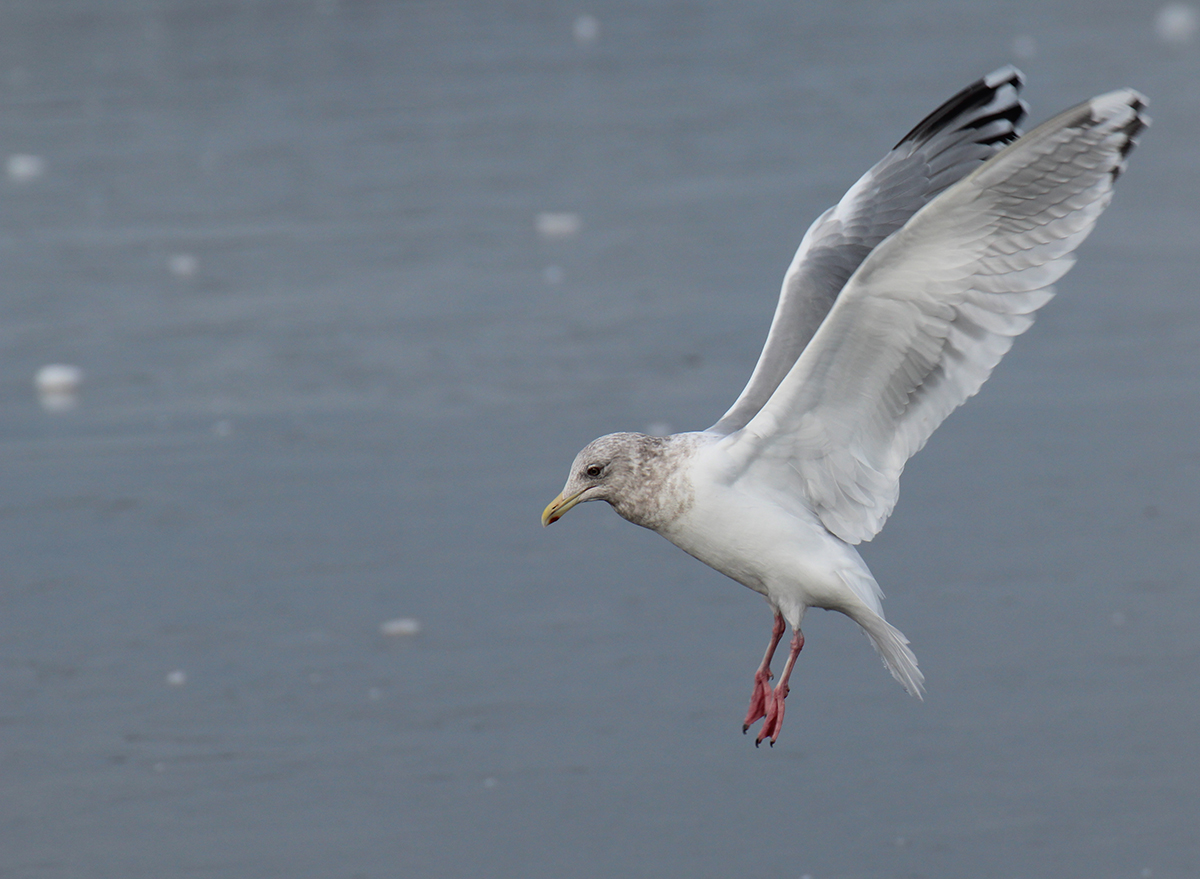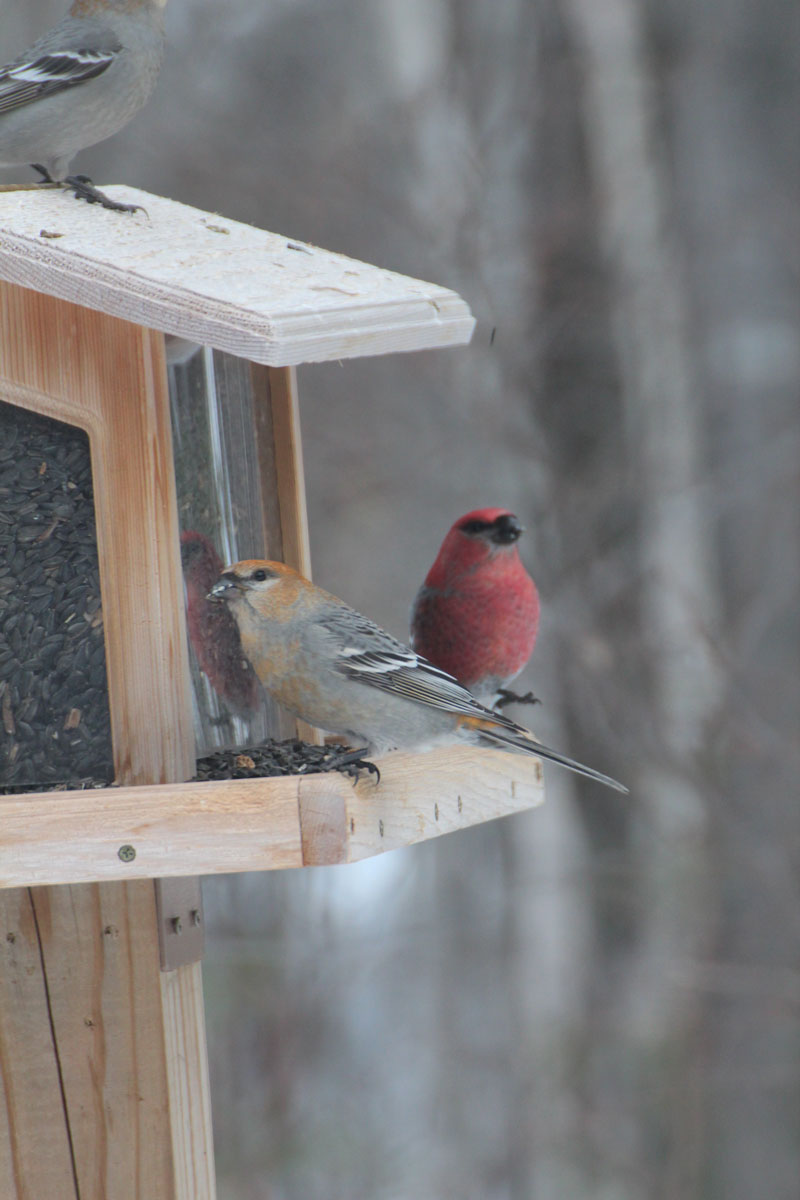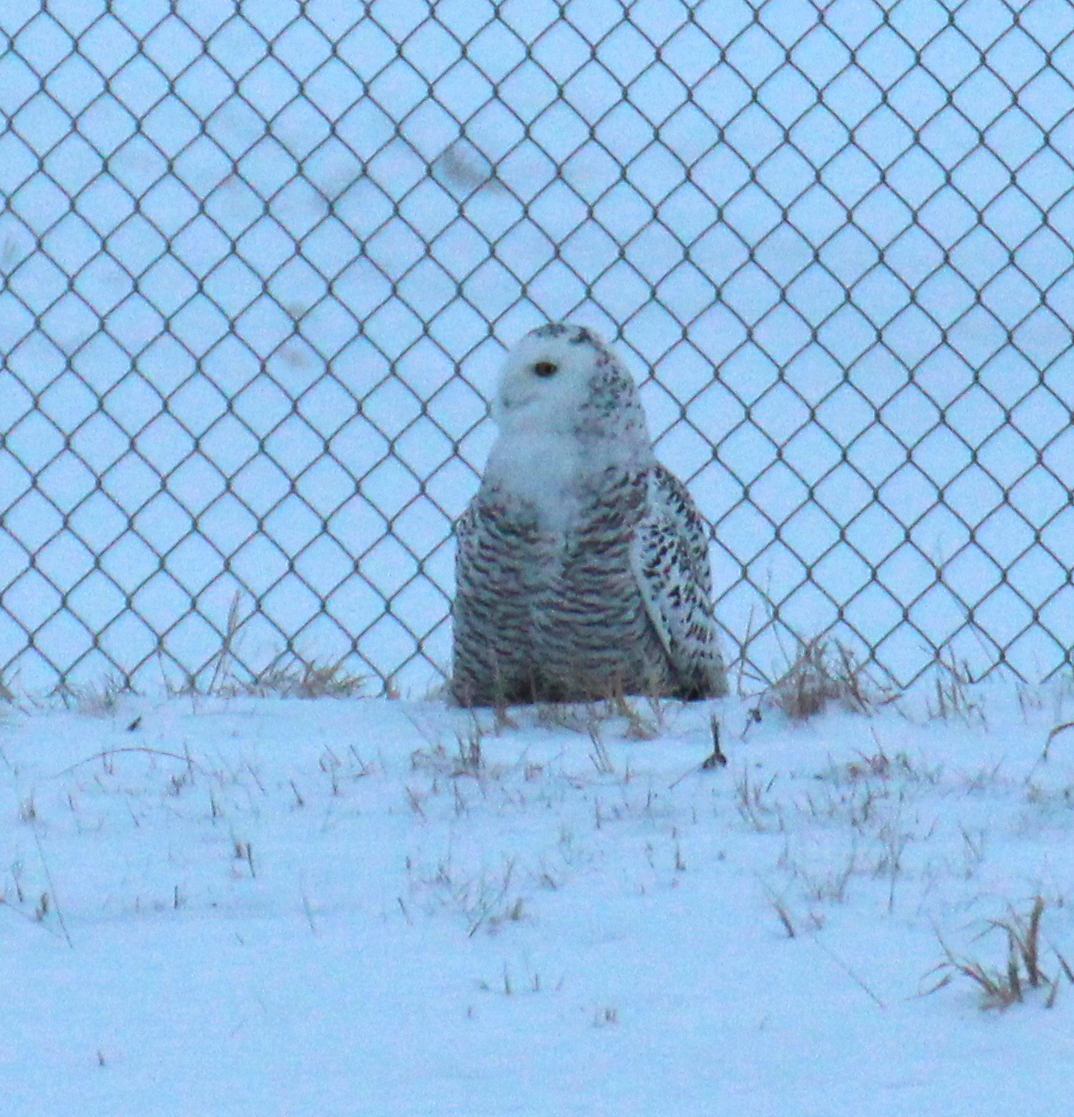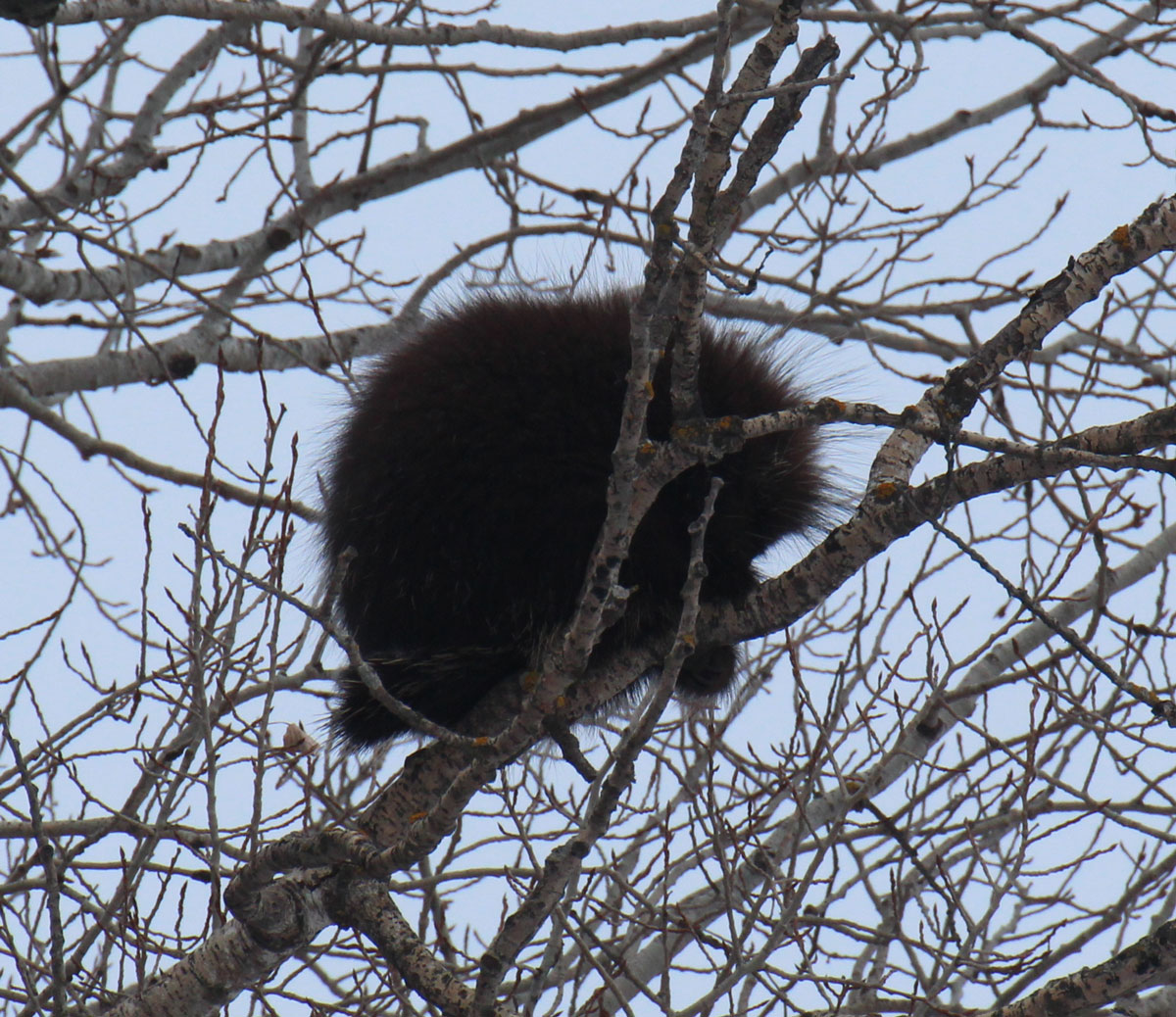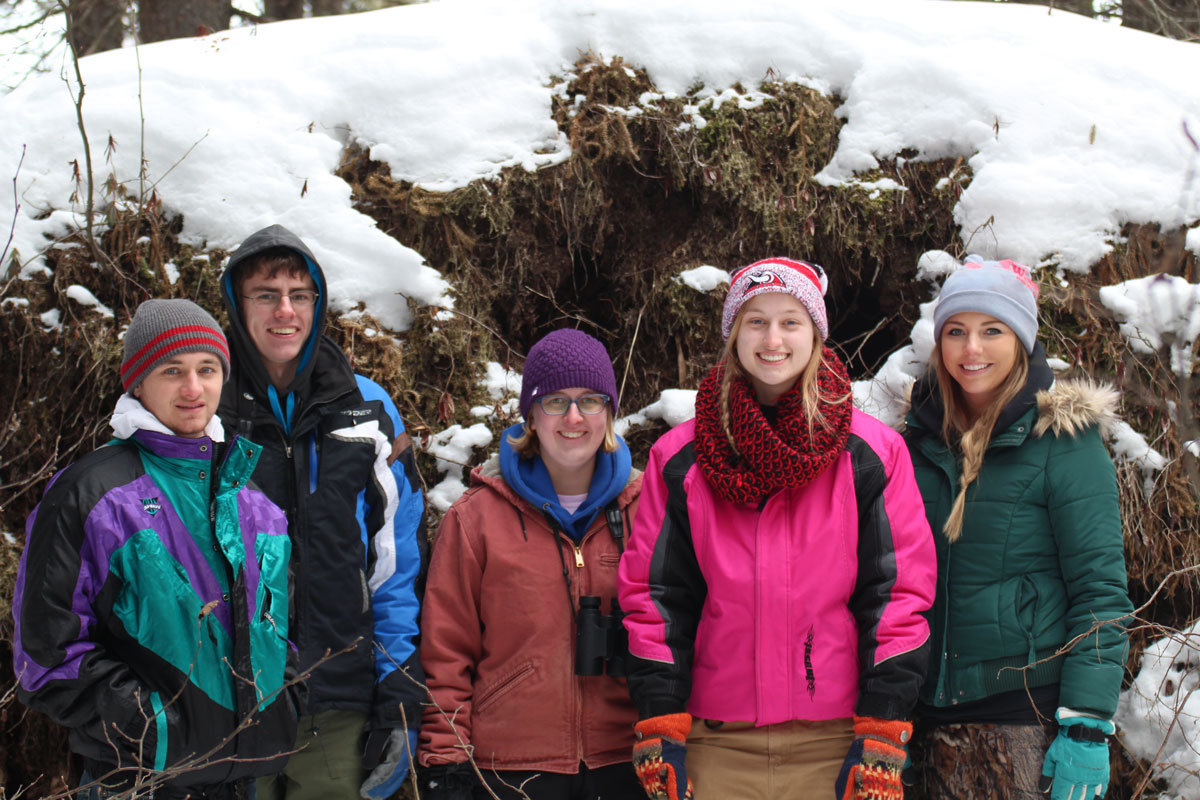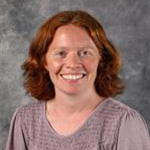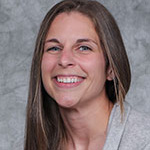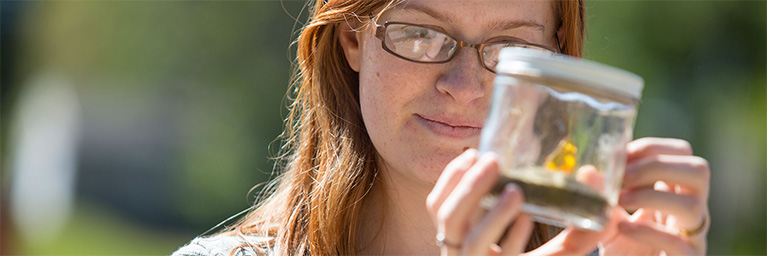
Majors
Biology
Biology is an exciting field centered on the study of the living world. Unique opportunities at Bethany include our cadaver dissection course and a wealth of options for field research.
Bethany’s biology major is designed to prepare you for human, field, or cellular biology. Students receive valuable one-on-one time with supportive faculty members as they learn techniques used in biology and develop skills for their future careers.
Explore Pre-Professional Programs
Quick Links
High school students and instructors are welcome to join us for special STEM events.
What Sets Bethany’s Biology Program Apart
Cadaver Dissection
Our biology program offers the course BIOL491 Introduction to Human Gross Anatomy. At Bethany, this course includes human cadaver dissection which is not offered at the undergraduate level at most schools. In this course, students gain invaluable learning experience and a strong advantage when applying to medical school or further studies in physical therapy.
Field Biology
Get involved with Hawk Watch or The Cobb River Project, a collaboration between Bethany and the U.S. Fish and Wildlife Service.
Campus Community
In the words of one of our graduates, “One aspect of the biology program at Bethany that truly sets it apart from other schools is the relationship that develops between the students and the professors. The professors reach beyond the classroom to ensure students succeed. They are available for questions almost everyday. They also give advice on getting a job or tips on graduate school. The professors genuinely care about the students. As a student, to have the support and encouragement from a professor is motivating and can be the push that one needs to succeed.” – Ivy Pike (’05), Lab Technologist at Mayo Clinic in Rochester, Minnesota.
Involvement
Our biology students and professors are passionate about their field and highly involved. In addition to trips to the Minnesota Zoo or the Cobb River Waterfowl Production Area, science-related trips, events, and speakers are also planned by The Bethany Organization of Student Scientists (B.O.S.S.), the science club on the Bethany campus. Members typically major in mathematics, chemistry, or biology though other interested students have joined. Past speakers have talked to students about graduate studies, medical school, and undergraduate research opportunities.
Biology Major Requirements & Courses
Entry into the Major
A student desiring to declare a biology major/minor must achieve a GPA of 2.0 or better in all college coursework, complete BIOL151 General Biology I and Lab BIOL152 General Biology II and Lab at least a “C-” or better and complete an interview with a faculty member in the Biology Department to ensure satisfactory progress and arrange for proper academic advising. A course can be repeated only once to achieve the minimum grade required.
Core Requirements
Students must successfully complete all of the following course work:
- BIOL151 General Biology I and Lab 4 cr.
- BIOL152 General Biology II and Lab 4 cr.
- BIOL340 Genetics and Lab 4 cr.
- BIOL350 Cell Biology and Lab 4 cr.
- BIOL405 Biology Research Proposal 1 cr.
Collateral Requirements
Students must successfully complete all of the following course work:
- CHEM113 General Chemistry I and Lab 5 cr.
- CHEM114 General Chemistry II and Lab 5 cr.
- MATH120 Introduction to Statistics 3 cr.
Choose One:
- MATH111 4 cr.
- MATH112 3 cr.
- MATH151 Calculus I 4 cr.
Choose One:
NOTE: MATH151 Calculus I I and CHEM215 Organic Chemistry I and Lab – Organic Chemistry I are recommended for biology majors pursuing graduate or professional schooling upon graduation.
^ Students intending to enter careers in medicine, physical therapy, or related fields should plan to take either PHYS151 College Physics I and Lab PHYS152 College Physics II and Lab or PHYS213 General Physics I and Lab PHYS214 General Physics II and Lab; a year of physics is often required for entry into such professional programs.
Biology Elective Cluster I: Apologetics
Students must successfully complete one of the following courses
- BIOL375 Trends in Evolutionary Theory 3 cr.
- SCIE320 History and Philosophy of Science 3 cr.
- SCIE330 Ethics in Science 3 cr.
Biology Elective Cluster II: Organism & Ecology
Students must successfully complete one of the following courses
- BIOL203 Botany and Lab 4 cr.
- BIOL215 Invertebrate Zoology and Lab 4 cr.
- BIOL216 Vertebrate Zoology and Lab 4 cr.
- BIOL311 Field Ornithology 4 cr.
- BIOL370 Ecology and Lab 4 cr.
Biology Elective Cluster III: Human Biology
Students must successfully complete one of the following courses
- BIOL221 Human Anatomy and Lab 4 cr.
- BIOL222 Human Physiology and Lab 4 cr.
- BIOL352 Immunology 4 cr.
- BIOL360 Microbiology and Lab 4 cr.
Additional Biology Electives
Students must successfully complete an additional 7 credits or more from the elective clusters above or the additional electives listed below:
- BIOL280 Medical Terminology 3 cr.
- BIOL480 Topics in Biology 1–4 cr.
- CHEM323 General Biochemistry and Lab 4 cr.
- CHEM324 Advanced Biochemistry 3 cr.
- *PHED350 Kinesiology 3 cr.
- *PHED450 Exercise Physiology and Lab 4 cr.
- *SCIE340 Environmental Issues 3 cr.
Only one course marked with an * can be taken as an elective for the biology major; others can be taken for credit but do not count towards the major
Capstone Elective Cluster
Students must successfully complete one of the following courses:
- BIOL491 Introduction to Human Gross Anatomy Anatomy 4 cr.
- BIOL498 Biology Independent Research (Prerequisite: BIOL405 Biology Research Proposal) 3–6 cr.
- BIOL499 Biology Internship 3–6 cr.
Biology Minor Requirements and Courses
The Biology Minor requires BIOL151 General Biology I and Lab, BIOL152 General Biology II and Lab a minimum of 15 credits of biology electives. Three courses must be laboratory courses and one course must be upper division. Only one course with a * may be counted as an elective. A grade of “C-” or better must be achieved in all minor coursework.
The minor in biology requires:
Electives: 15 credits from biology major electives section. A minimum of 3 credits from upper division courses; no more than 2 SCIE courses.
To view the most recent course list and requirements for the biology major, please consult the Academic Catalog.
Biology Facilities
All students, including freshmen, have access to our research and classroom facilities and equipment. The Marvin G. Meyer Hall of Science and Mathematics is a 53,000 square foot facility that houses four biology labs, four chemistry labs, three computer labs, and three physics labs as well as numerous classrooms and faculty offices. Special features of the facility include ample lab preparation and storage areas, as well as a 120-seat seminar room with tiered seating. Our students also have access to 3,000 acres of field study sites, the campus prairie and teaching garden, and greenhouse.
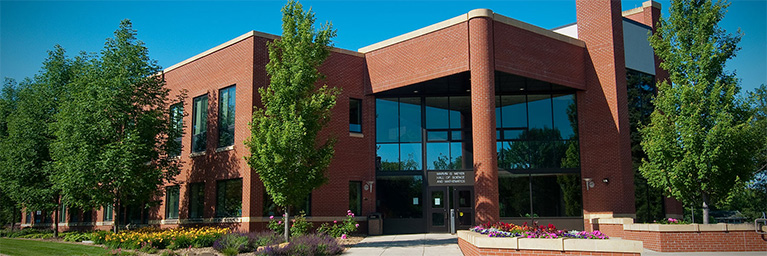
Meyer Hall
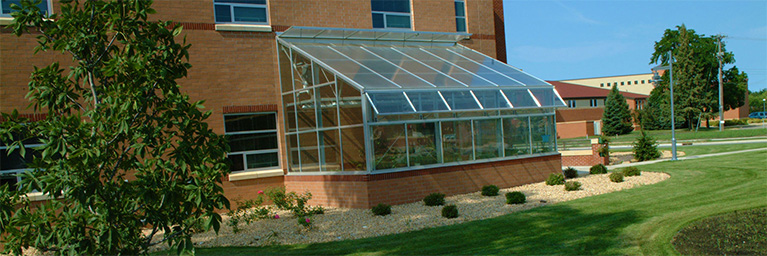
Greenhouse
Field Biology
Bethany has excellent opportunities in field biology for all interested students. Students majoring in Biology are especially encouraged to take advantage of these programs and excursions.
Bethany Hawkwatch
Bethany’s location overlooking the Minnesota River Valley affords excellent viewing opportunities for migrating birds. A total of 182 bird species have been recorded on campus and raptors like eagles, falcons, hawks, and vultures migrate along the river corridor. Since 2004, when data was first collected, over 29,000 raptors have been observed migrating through the Minnesota River Valley during their fall migration. The Bethany Hawkwatch averages nearly 2,500 raptors each season between August 15 and December 15.
In 2010, the Bethany Hawkwatch joined Hawkcount which is a clearing house for data from across the country. That data can then be used for determining the health of raptor populations across North America.
Bird Banding Trip
Bethany students visit Minnesota’s North Shore to band and release hawks.
Bird Watching Trip
On occasion, Professor Chad Heins will take students from his Topics in Biology course up to northern Minnesota in search of uncommon birds from the boreal forest and rare gulls and other birds from the Arctic.
On a past trip to the Duluth-Superior Harbor, students learned to distinguish between the common Herring Gulls and the rarer Thayer’s Gull. They also compared the common overwintering Mallards with the closely related American Black Duck. Searches for wintering Gyrfalcons came up empty but students watched a Peregrine Falcon dive-bomb a Red-tailed Hawk and also found a flock of Snow Buntings in Superior. As the light faded, the class spent more time looking for Snowy Owls and managed to find two of these tundra-nesting birds before it got too dark see them.
Other activities include spending time in the world-famous Sax-Zim Bog northwest of Duluth. Here, boreal birds reach the southern limit of their range. Searches for Great Gray Owl and Black-backed Woodpecker were unsuccessful but spectacular views of finches like Common Redpoll, Pine Grosbeak, and Evening Grosbeak were had at various feeding stations. Students also had a chance to observe Gray Jay, Boreal Chickadee, and Ruffed Grouse and a couple of students even tried to copy Professor Heins and have a Black-capped Chickadee eat out of their hand. Temperatures were warmer than usual and students perhaps had the most fun on a hike through a Black Spruce/Tamarack bog off of McDavitt Road. Here they crossed paths with the tracks of a Bobcat and the ever-abundant Snowshoe Hares. A North American Porcupine snoozing in a tree though ended up being their favorite mammal of the day.
Bethany’s small class-sizes make these types of opportunities possible. Come check us out!
Contact the Biology Department
Biology Faculty
Next Steps
Interested in studying at Bethany? Scheduling a campus visit is a great way to see what we have to offer. You can meet professors or sit in on a class too! Contact our admissions office to learn more.
